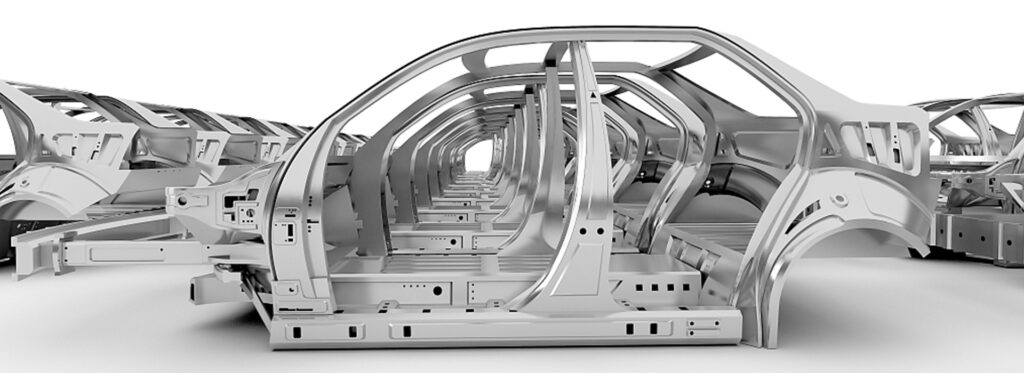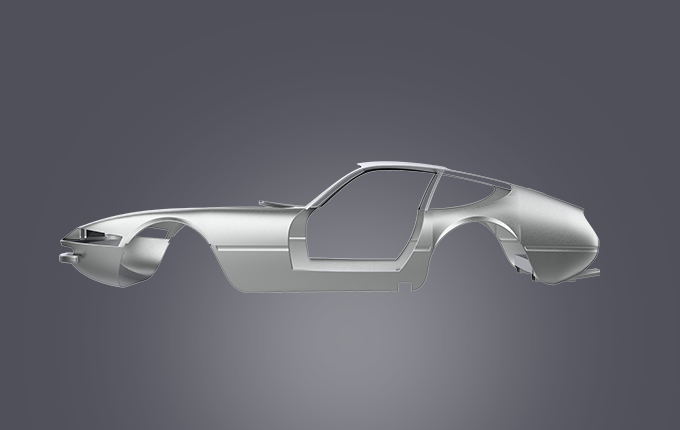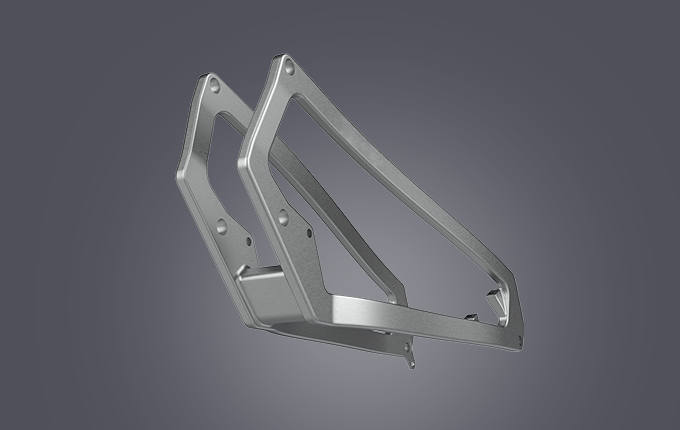Introdução
In the automotive industry, precision and efficiency are critical for the production of high-quality vehicles and components. Tube laser cutting machines are an essential tool in this industry, providing the ability to cut complex shapes and profiles with a high degree of accuracy and repeatability. In this article, we will explore the role of a tube laser cutting machine in automotive manufacturing, and how it is used to produce structural components, engine and drivetrain parts, and interior and exterior components. We will also discuss the benefits of using a tube laser cutting machine in the automotive industry, including improved precision, efficiency, and safety. By understanding the capabilities and limitations of a tube laser cutting machine, manufacturers can make informed decisions about the best equipment for their specific needs.

Structural Components


Examples of structural components produced using laser cutting in the automotive industry include:
- Chassis parts, such as frames and brackets
- Suspension components, such as control arms and springs
- Steering components, such as steering columns and linkages
- Brake components, such as calipers and rotors
Engine and Drivetrain Components
Examples of engine and drivetrain components produced using laser cutting in the automotive industry include:
- Engine blocks and cylinder heads
- Crankshafts and camshafts
- Transmission gears and shafts
- Drivetrain components, such as axles and differential gears
Benefits of Using a Tube Laser Cutting Machine
Precision Cutting for Automotive Components
In the automotive industry, precision is paramount. Components such as exhaust systems, roll cages, chassis parts, and tubular frames require precise cuts to ensure proper fitment and functionality. Traditional cutting methods often result in inconsistencies and imperfections, leading to compromised quality. However, tube laser cutting machines offer unparalleled precision, allowing manufacturers to achieve intricate cuts and complex designs with exceptional accuracy.
Streamlining Production Processes
Tube laser cutting machines streamline the production processes in automotive manufacturing. With their high-speed cutting capabilities, these machines significantly reduce the time required for cutting and shaping various components. By automating the cutting process, manufacturers can achieve faster turnaround times, leading to increased productivity and overall efficiency in the production line.
Increased Efficiency and Cost Savings
Efficiency and cost savings are crucial factors in automotive manufacturing. Tube laser cutting machines contribute to these aspects by eliminating the need for multiple setups and tooling changes. The versatility of the machine enables manufacturers to cut different designs and profiles without the requirement of additional equipment or tooling, resulting in reduced setup costs and improved operational efficiency.
Versatility in Cutting Various Materials
Automotive manufacturers work with a wide range of materials to meet different specifications and requirements. Tube laser cutting machines offer the versatility to cut various materials, including different grades of steel, aluminum, and other metals. This flexibility allows manufacturers to adapt to changing demands and produce high-quality components efficiently.
Quality Control and Consistency
Maintaining consistent quality is of utmost importance in automotive manufacturing. Tube laser cutting machines provide excellent repeatability, ensuring consistent results across multiple components. The precision and accuracy of the cuts eliminate variations caused by manual processes, resulting in improved quality control and adherence to strict manufacturing standards.
Reducing Waste and Environmental Impact
Sustainability and environmental considerations are increasingly significant in the automotive industry. Tube laser cutting machines contribute to reducing waste by optimizing material usage. With precise cutting, manufacturers can minimize scrap and maximize material utilization, leading to a reduction in overall waste generation. Additionally, the use of laser cutting technology reduces the need for harmful chemicals and lubricants associated with traditional cutting methods, resulting in a more eco-friendly manufacturing process.
Safety Considerations in Automotive Manufacturing
Safety is a critical aspect of automotive manufacturing. Tube laser cutting machines incorporate safety features such as protective enclosures, interlocks, and sensors to ensure the well-being of operators. Proper training and adherence to safety protocols are essential to minimize the risks associated with operating these machines.
Integration with CAD/CAM Software
Tube laser cutting machines seamlessly integrate with computer-aided design (CAD) and computer-aided manufacturing (CAM) software. This integration enables manufacturers to translate design specifications into precise cutting instructions, minimizing human error and maximizing efficiency. The ability to import design files directly into the machine’s control system streamlines the production process and reduces manual intervention.
Training and Skill Development
The operation of tube laser cutting machines requires specialized training and skill development. Manufacturers invest in training programs to ensure their operators are proficient in operating and maintaining these machines. Proper training enhances operational efficiency, reduces downtime, and ensures the longevity of the equipment.
Future Trends and Innovations
As technology continues to evolve, the future of tube laser cutting machines in automotive manufacturing looks promising. Advancements in laser technology, automation, and machine learning are expected to further enhance the capabilities and efficiency of these machines. Manufacturers can anticipate increased productivity, improved material utilization, and reduced production costs as these innovations unfold.
Recommend product
Challenges of Tube Laser Cutting Machines
Initial investment: Tube laser cutting machines can be expensive to purchase, especially if they are large or have advanced features. This can be a significant challenge for manufacturers, especially those with limited budgets or resources. Operating costs: The ongoing operating costs of a tube laser cutting machine, including the cost of the laser source, assist gas, and consumables such as lenses and nozzles, can be high. These costs can vary depending on the specific machine and the materials being cut. Material limitations: While laser cutting machines can cut a wide range of materials, there are some materials that are difficult or impossible to cut using this method. This can be a challenge for manufacturers who need to cut certain materials for their specific applications. Safety concerns: Laser cutting machines can produce high-energy laser beams that can be hazardous to the operators. It is important for manufacturers to follow proper safety procedures and use appropriate protective equipment when using these machines. Maintenance and upkeep: Like any manufacturing equipment, tube laser cutting machines require regular maintenance and upkeep to ensure that they are operating at their best. This can be a challenge for manufacturers, as it requires time and resources to properly maintain the equipment.
Quality Control Measures for Automotive Production
Inspection: Manufacturers should conduct regular inspections of their products and components to identify any defects or issues that may affect their quality. This can include visual inspection, as well as more advanced methods such as X-ray inspection or laser scanning. Testing: Manufacturers should perform various tests on their products to ensure that they meet the required performance and safety standards. This can include tests such as strength, durability, fatigue, and corrosion testing. Quality management systems: Implementing a quality management system, such as ISO 9001, can help manufacturers to establish and maintain consistent quality standards throughout their production process. This can involve setting quality targets and objectives, implementing quality control procedures, and conducting regular reviews and audits. Training: Providing training to employees on quality control processes and procedures can help to ensure that they are able to identify and address any issues that may affect the quality of the products. Supplier management: Ensuring that the materials and components used in production are of high quality is critical for maintaining overall product quality. Manufacturers should carefully select and manage their suppliers to ensure that they meet their quality standards.
Conclusão
In conclusion, tube laser cutting machines are an essential tool in the automotive industry, providing the ability to cut complex shapes and profiles with a high degree of accuracy and repeatability. These machines are used to produce a wide range of components and parts, including structural components, engine and drivetrain parts, and interior and exterior components. The use of a tube laser cutting machine offers a number of benefits, including increased precision and accuracy, efficiency and cost-effectiveness, improved safety, versatility and flexibility. By understanding the capabilities and limitations of a tube laser cutting machine, manufacturers can make informed decisions about the best equipment for their specific needs. Overall, the role of a tube laser cutting machine in automotive manufacturing is critical for the production of high-quality vehicles and components.

